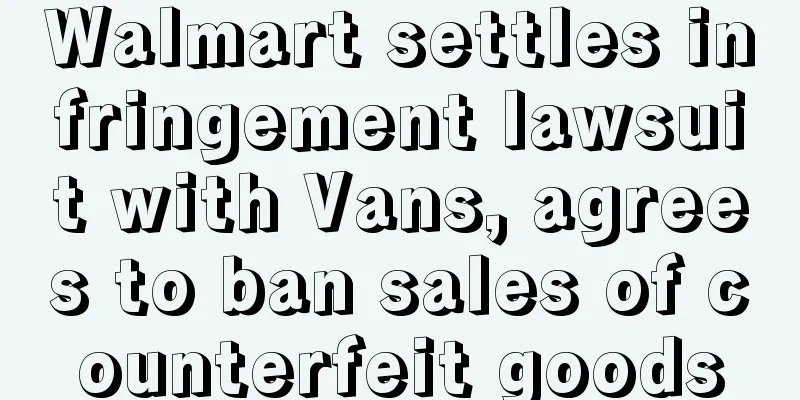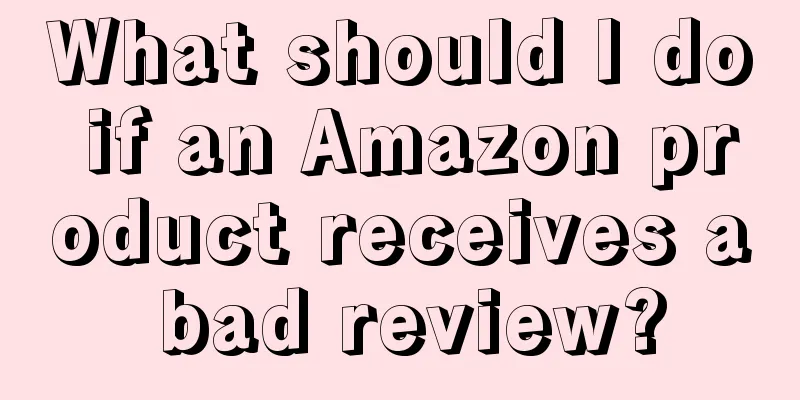Walmart settles infringement lawsuit with Vans, agrees to ban sales of counterfeit goods

|
According to Reuters, on November 13, documents from the U.S. California Federal Court showed that Walmart and Vans had reached a settlement in the trademark infringement lawsuit and agreed to the court's ruling to permanently ban the sale of the brand's counterfeit goods on the platform. Vans' lawsuit claimed that Walmart was suspected of plagiarizing the design of its best-selling products. So far, the lawsuit has lasted for two years.
In 2021, Vans filed its first infringement lawsuit against Walmart, accusing it of copying almost all of Vans' best-selling sneakers, including the Old Skool low-top shoes and the Sk8-Hi high-top shoes. The lawsuit claims that Walmart's counterfeit goods, which cost less than $20, are cheap and poorly made, but look almost exactly the same as the $60 Vans.
In January 2022, Walmart filed a motion to dismiss Vans' lawsuit, saying that Vans' design did not qualify for trademark protection. However, a U.S. district judge pointed out that Walmart's shoes were clearly strikingly similar to Vans' shoes, that Walmart showed some intent to confuse consumers, and that there was evidence that customers were actually confused.
In April 2022, U.S. District Judge David Carter approved Vans' request to temporarily ban Walmart from selling counterfeit shoes and rejected Vans' request to file a contempt lawsuit against Walmart for violating the court order.
In July 2022, Vans filed a lawsuit again, claiming that Walmart continued to sell infringing shoes in violation of the ban, and accused it of becoming more rampant and launching more styles similar to Vans' best-selling shoes. Vans asked the court to fine Walmart $3,000 per day.
Until recently, the two-year legal battle between Walmart and Vans came to an end. Agreeing to ban the sale of counterfeit brands means that Walmart will strengthen the supervision and review of footwear products sold by third-party sellers on the platform, and sellers may need to pay more attention to whether the products are infringing.
Editor✎ Ashley/ Disclaimer: This article is copyrighted and may not be reproduced without permission. |
<<: U.S. imports peaked in September! Retailers are ready for the peak season
>>: From supply chain to store-in-store, Shein deepens cooperation with Forever21
Recommend
Walmart will once again take the top spot in the U.S. online grocery market in 2021, followed closely by Home Depot!
It is learned that according to data from Insider ...
Blood loss! Amazon's "black hand"! Sellers' orders dropped 6 times, FBA shipping costs soared...
As an FBA seller, delivery fees are an inevitable ...
The trend of "full hosting model" has been set off! Major e-commerce giants have joined the market!
The sudden emergence of Temu seems to have invisib...
The latest survey of American consumers! This experience is the key to retaining customers
Recently, Shopify's return platform Loop relea...
What is the long-term storage fee? Long-term storage fee review
Amazon FBA Long-Term Storage Fees are in addition ...
How to deal with big keywords with high exposure, high clicks and low conversion in Amazon advertising?
Control bidding while still maintaining a certain...
Is it just to share inventory risk when selling the same ASIN in multiple stores and selling it yourself? Is it just to reduce the weight when the store dies?
Is selling the same ASIN to multiple stores just ...
Amazon traffic has dropped sharply recently? Now the front desk has changed a lot!
Do you feel that the number of orders has dropped...
Free no-split warehouse tips, say goodbye to warehouse closing fees
Source: Know Nothing Recently I found that the ru...
How to get top rankings on Amazon ads
Amazon's A10 search engine algorithm is respo...
The highest annual salary is one million? Temu is recruiting talents for this position
It is learned that according to the latest report ...
What is a European Authorized Representative (EU-AOR)? EU-AOR Evaluation
European Authorized Representative refers to a nat...
What is MoneyTable? MoneyTable Review
MoneyTable is a financial technology company. The ...
Revealed! How service providers can reduce Amazon sales commissions
As an Amazon seller, have you ever thought about ...
Are you doing VINE for Amazon's new products? Why I gave up decisively!
Many seller friends will consider whether to obtai...


![[Breaking news] FBA delivery restrictions have changed! The quantity that can be shipped is even smaller?](/upload/images/67e705619b168.webp)






